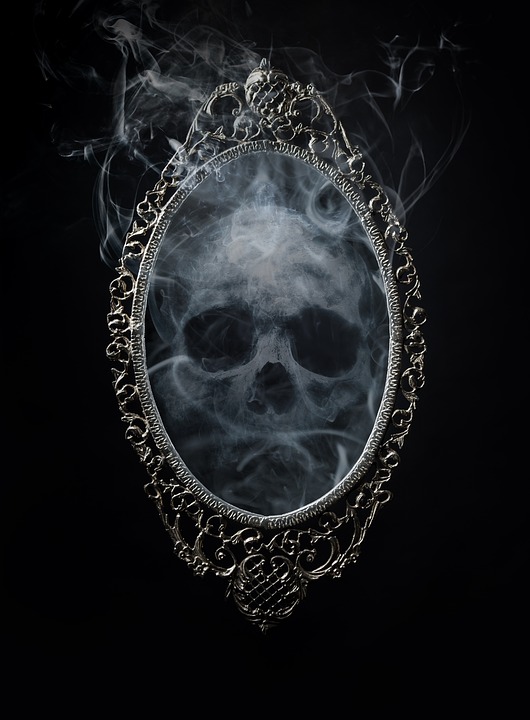
Hear Who’s Haunting the Charts: The Truth About Ghost Singers
For years, the music industry has been shrouded in mystery when it comes to the artists behind some of the biggest hits. While many fans assume that their favorite singers are the ones belting out those catchy tunes, the truth is that there is a long-standing practice in the industry of using “ghost singers” to record songs for popular artists. These anonymous vocalists often go uncredited, leaving fans in the dark about who is really behind the vocals on their favorite tracks.
What is a Ghost Singer?
A ghost singer is a vocalist who records vocals for a song that are later attributed to another artist. This practice is common in the music industry for a variety of reasons. Sometimes, an artist may not have the vocal range or skill to perform a particular song, so a ghost singer is brought in to ensure that the track is as polished and professional as possible. Other times, label executives may believe that a different voice would be better suited for a song, so they hire a ghost singer to perform the vocals instead.
Ghost singers are often chosen for their versatility and ability to mimic the style and tone of the artist they are recording for. They may be hired to sing a single line or an entire song, depending on the needs of the project. In some cases, the ghost singer may also provide backing vocals or harmonies to enhance the overall sound of the track.
Why Use Ghost Singers?
There are several reasons why a record label or artist may choose to use a ghost singer. In some cases, the artist may simply not have the time or desire to record vocals for a particular song. Hiring a ghost singer allows them to focus on other aspects of their career while still releasing new music.
Additionally, some artists may not have the vocal ability to perform a certain song. By hiring a ghost singer with the necessary skills, they can ensure that the final product is of the highest quality. This is especially common in genres like pop and R&B, where vocal acrobatics are often a key component of the music.
Another reason why ghost singers are used is to create a certain image or persona for an artist. By hiring a ghost singer who fits a particular sound or style, labels can mold the artist’s public image to appeal to a specific audience. This can be especially useful for artists who are just starting out in the industry and may not have a fully developed sound or identity yet.
Examples of Ghost Singers
While the use of ghost singers is often kept under wraps, there have been instances where the truth has come to light. One famous example is Milli Vanilli, a pop duo from the late 1980s and early 1990s. It was revealed that the two members, Rob Pilatus and Fab Morvan, did not actually sing on their hit songs and were instead lip-syncing to vocals recorded by other singers. This scandal ultimately led to the duo being stripped of their Grammy Award for Best New Artist.
Another example is The Pussycat Dolls, a girl group known for their hit songs like “Don’t Cha” and “Buttons.” It was later revealed that lead singer Nicole Scherzinger was the only member of the group who sang on the recordings, with the rest of the group providing little more than backing vocals. This revelation sparked controversy among fans and raised questions about the authenticity of the group’s music.
The Debate Over Ghost Singers
The use of ghost singers in the music industry has long been a topic of debate among fans and industry professionals. Some argue that it is a necessary practice in order to create the best possible music, while others believe that it is dishonest and deceptive to listeners.
Proponents of ghost singers point to the fact that many artists simply do not have the vocal ability to perform certain songs. By using a ghost singer, they can ensure that the final product is of the highest quality and meets the expectations of their fans. Additionally, some argue that the use of ghost singers allows artists to focus on other aspects of their career, such as live performances and songwriting, without sacrificing the quality of their music.
On the other hand, critics of ghost singers believe that it is misleading to fans and undermines the authenticity of an artist’s work. They argue that fans deserve to know who is behind the vocals on their favorite songs and that using ghost singers can create a false image of talent and skill. Additionally, some critics believe that the use of ghost singers perpetuates an unrealistic standard of perfection in the music industry, where artists feel pressure to always deliver flawless performances.
In Conclusion
The use of ghost singers in the music industry is a complex and controversial practice that raises questions about authenticity, talent, and the pressures of the industry. While some argue that ghost singers are a necessary tool for creating quality music, others believe that they are deceptive and misleading to fans.
Regardless of where you stand on the issue, it is clear that ghost singers play a significant role in shaping the sound and image of many popular artists. As fans, it is important to be aware of the practices that go on behind the scenes in the music industry and to consider the implications of using ghost singers on the integrity and authenticity of the music we love.